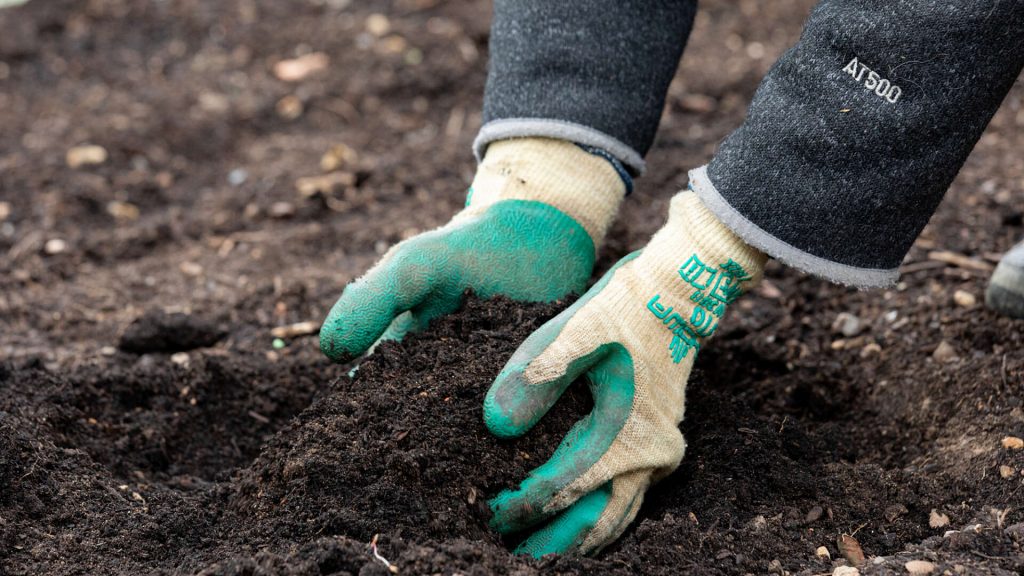October 30, 2025

Soil alkalinity poses a major challenge to rose growers worldwide. In many calcareous soils, high pH levels drastically reduce the availability of essential micronutrients, particularly iron (Fe), leading to chlorosis, poor vegetative growth, and reduced flowering quality. These physiological disorders not only compromise plant health but also diminish the aesthetic and commercial value of cut roses and garden varieties alike.
A recent study has shed light on a promising, nature-based solution: resveratrol, a non-flavonoid polyphenolic compound well known for its antioxidant and signaling properties in plants. Long recognized for its role in stress defense, resveratrol is now gaining attention as a biostimulant capable of improving nutrient uptake, reducing oxidative stress, and enhancing overall plant resilience especially under alkaline and iron-deficient conditions.
The Problem: Alkaline Soils and Iron Deficiency
In soils with pH levels above 8.0, iron becomes less soluble and, therefore, less available for plant absorption. Roses, which have a relatively high iron demand, often exhibit leaf yellowing, reduced chlorophyll synthesis, and stunted growth when exposed to such conditions. Physiological studies show that under alkaline and low-iron stress, plant biomass can drop by nearly 50%, while chlorophyll content may decline by up to 80%. Additionally, oxidative stress markers, including hydrogen peroxide (H₂O₂) and malondialdehyde (MDA), rise sharply, indicating cell damage and loss of membrane integrity.
Resveratrol as a Biostimulant
When applied as a foliar treatment, resveratrol has demonstrated significant potential to counter these effects. At moderate concentrations, the compound enhances growth by improving photosynthetic efficiency and restoring chlorophyll content. Experimental evidence shows that resveratrol-treated plants can experience up to 60% higher biomass and nearly double chlorophyll recovery compared to untreated counterparts grown under the same stress conditions.
Resveratrol also strengthens the plant’s antioxidant defense system, helping neutralize reactive oxygen species (ROS) and protect cell membranes from oxidative injury. As a result, leaves retain their green color longer, roots remain more active, and the plant maintains better water balance during stress periods.
Improved Nutrient Uptake and Iron Metabolism
Beyond its antioxidant action, resveratrol plays a vital role in nutrient regulation. It has been shown to stimulate ferric chelate reductase (FCR) activity, the enzyme responsible for converting unavailable Fe³⁺ to the absorbable Fe²⁺ form. This enzymatic boost enhances iron uptake and contributes to balanced accumulation of other nutrients such as nitrogen, phosphorus, potassium, zinc, and manganese.
By improving nutrient-use efficiency, resveratrol enables roses to thrive even in suboptimal soil or irrigation conditions, reducing dependence on synthetic chelates or frequent acidifying treatments.
Implications for Rose Growers
For commercial rose producers and landscape growers, the adoption of natural biostimulants like resveratrol aligns with the growing demand for eco-friendly, sustainable crop management practices. The compound’s dual function, acting both as an antioxidant and a signaling molecule, positions it as a valuable tool in mitigating abiotic stress while maintaining high flower quality and yield.
In production systems affected by hard water, saline irrigation, or alkaline media, resveratrol application could help stabilize plant performance, minimize nutrient disorders, and support consistent flower coloration and vigor.
Conclusion
Resveratrol represents a promising new frontier in sustainable floriculture. Its ability to enhance iron bioavailability, alleviate oxidative stress, and boost overall plant resilience offers a practical and environmentally sound approach to managing alkaline soil challenges in rose cultivation.
As the floriculture industry continues its shift toward greener inputs and improved efficiency, resveratrol-based biostimulants may soon become a key component in rose nutrition and stress management programs, ensuring healthier plants, longer-lasting blooms, and more sustainable production systems.
